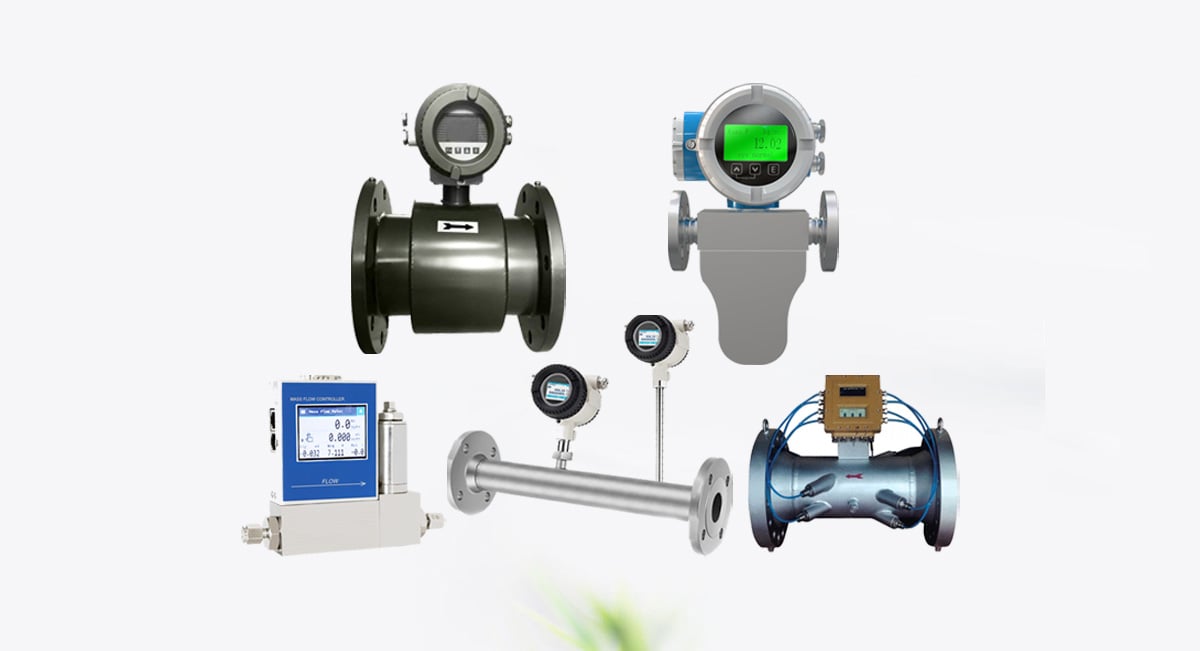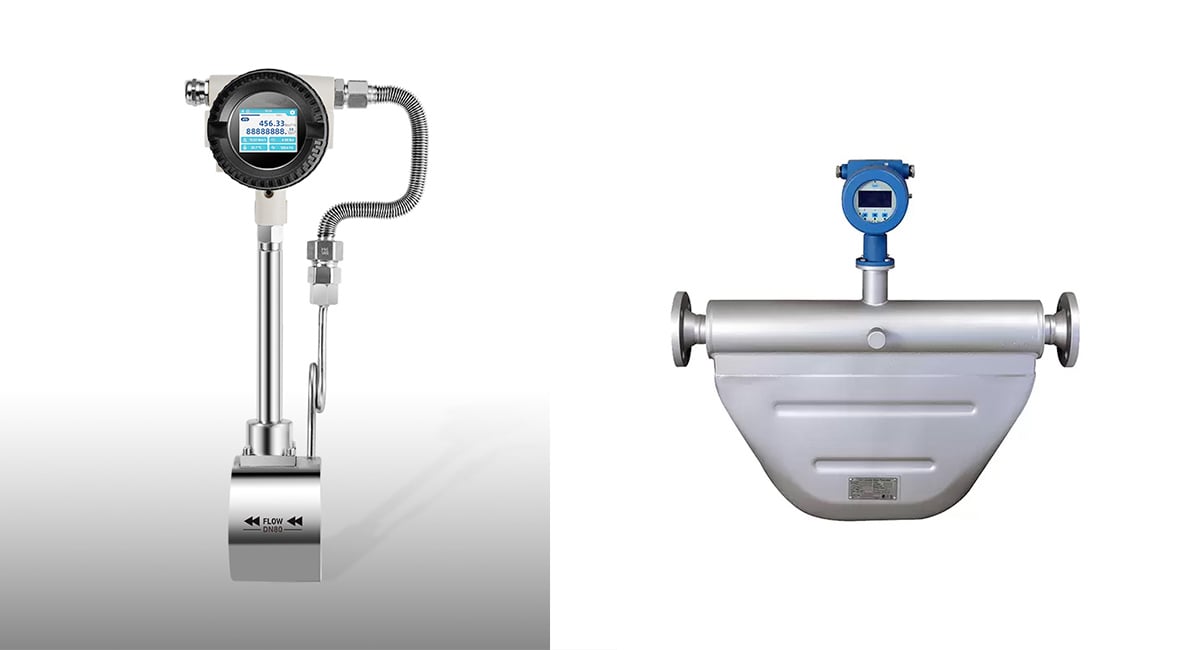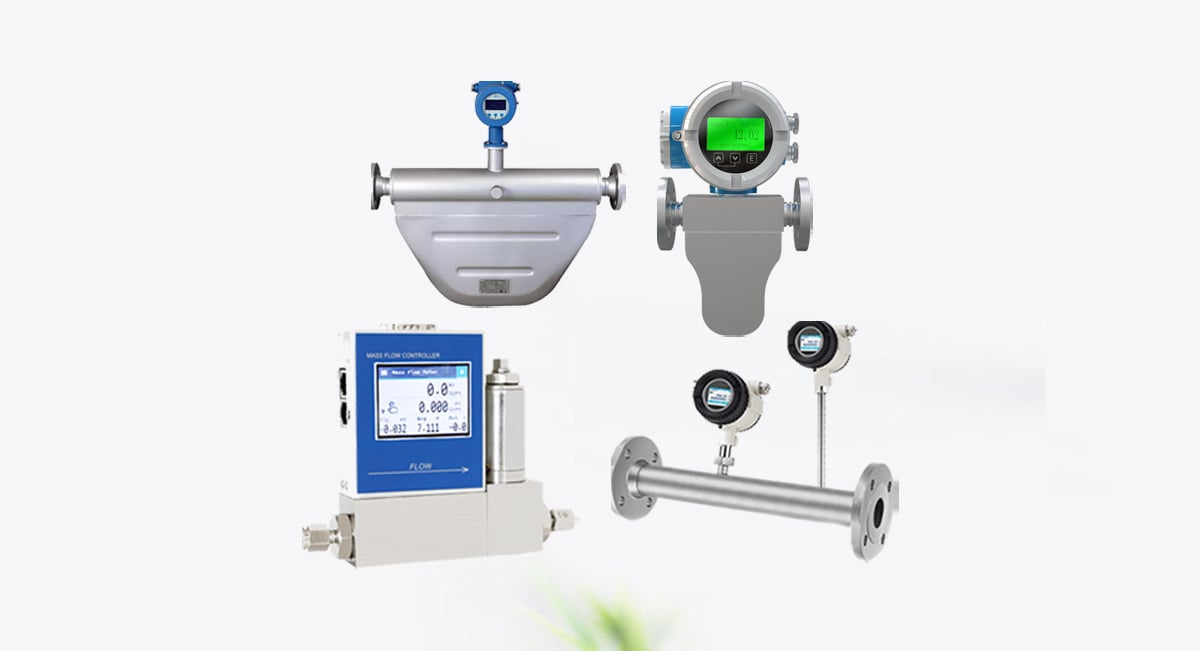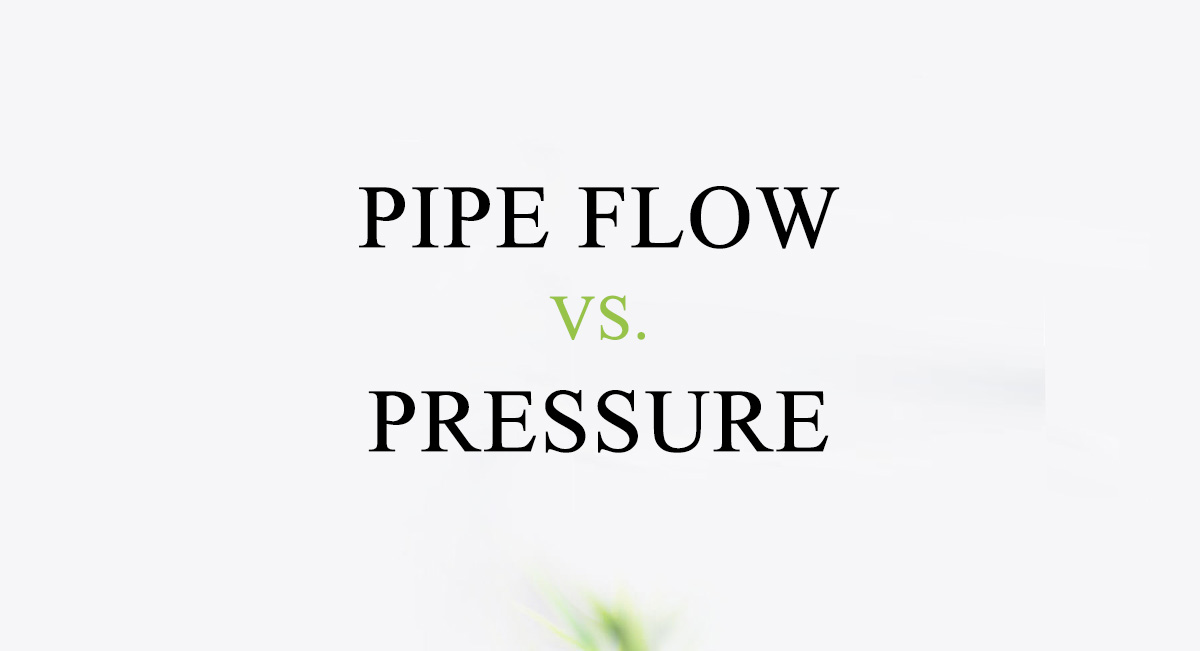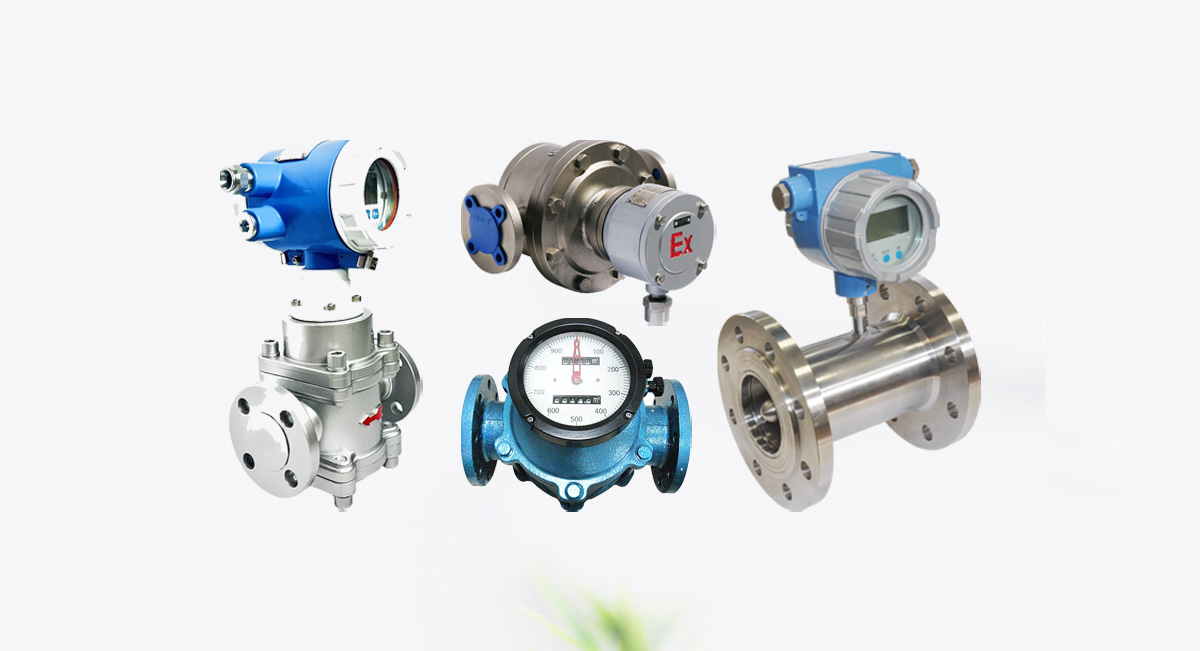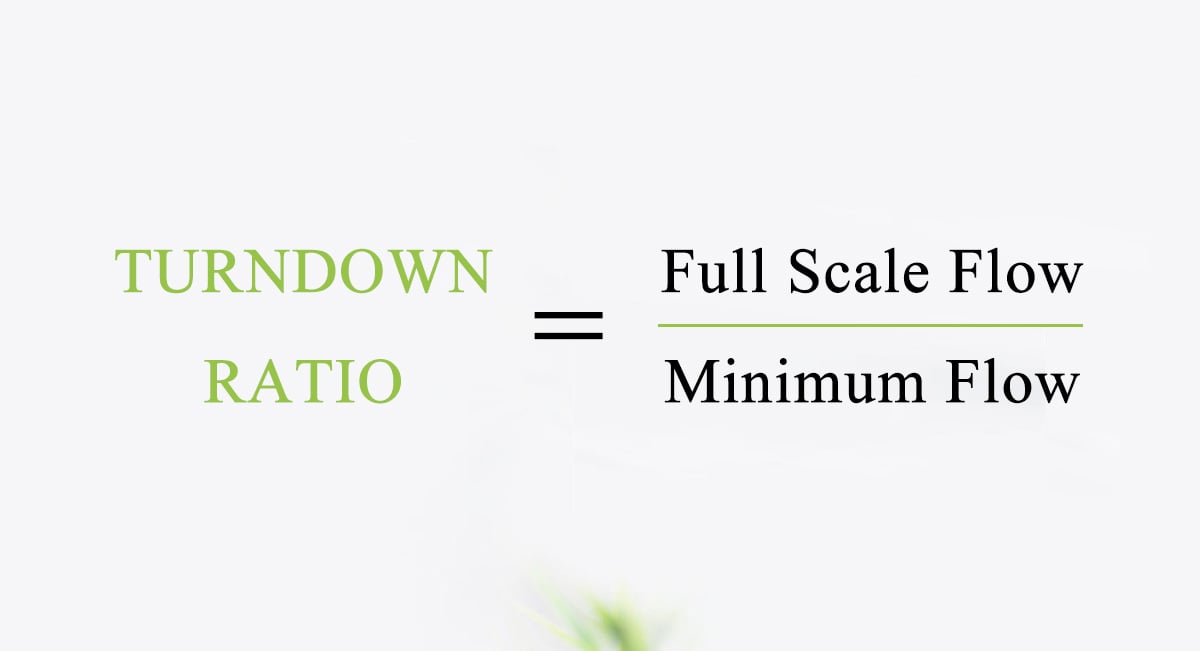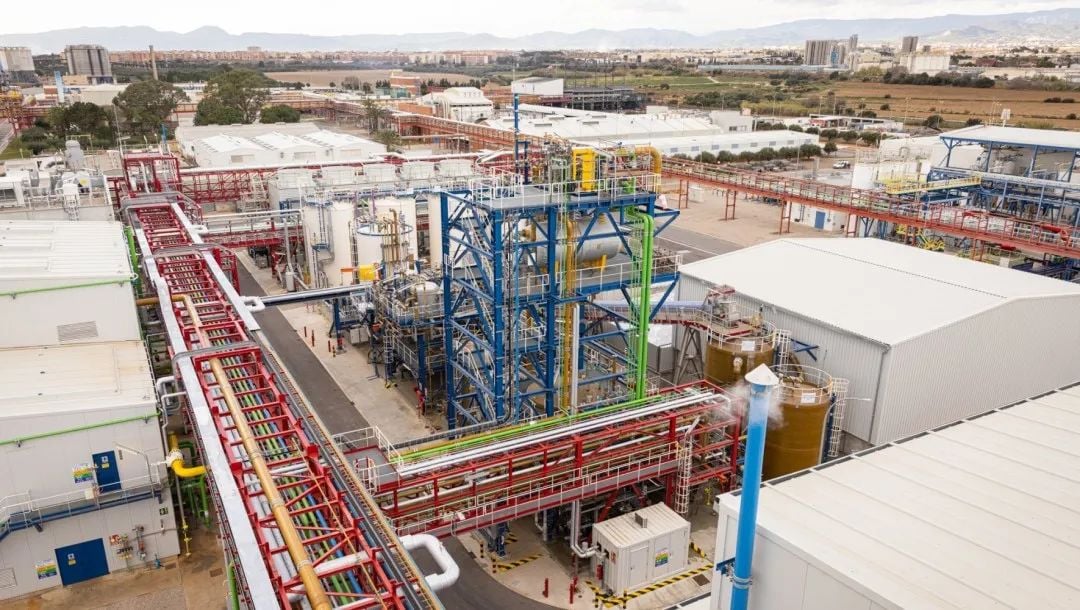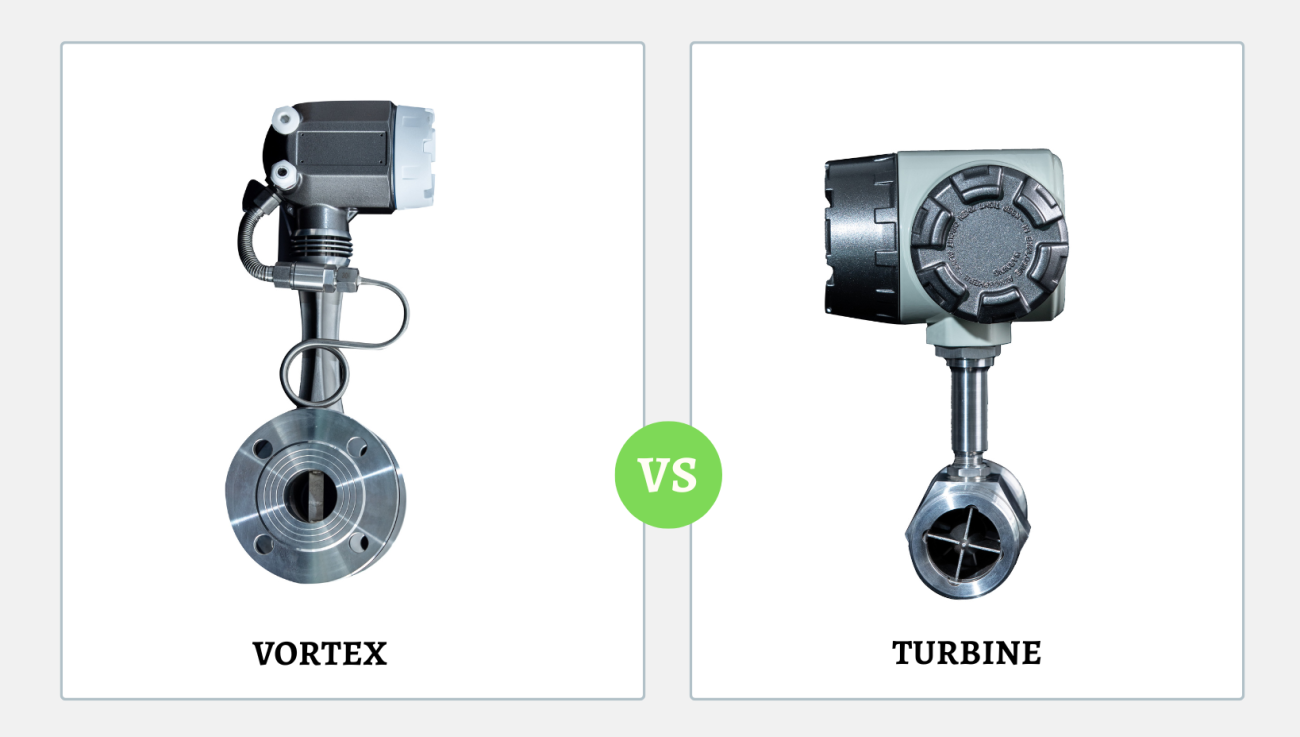In the chemical and process industries, accurate measurement and control of fluid flow are fundamental to ensuring product quality, safety, and efficiency. Chemicals often vary widely in viscosity, corrosiveness, temperature, and pressure — making flow measurement a technical challenge that requires specialized instruments.
Spis treści
What Is a Chemical Flow Meter?
A chemical flow meter is an instrument designed to measure the rate or total volume of chemical fluids passing through a pipeline. These fluids can include liquid chemicals, corrosive acids, alkalis, solvents, fuels, and even chemical gases.
The purpose of a chemical flow meter is to ensure that precise quantities of chemicals are delivered, mixed, or reacted as required in industrial processes. Accurate flow measurement is critical in sectors such as:
- Chemical manufacturing (acid/base dosing, solvent blending)
- Pharmaceutical production (precise ingredient ratios)
- Petrochemical and refinery processes (fuel and lubricant monitoring)
- Water and wastewater treatment (chlorine or pH-control chemicals)
- Przemysł spożywczy i napojów (cleaning and sterilization chemicals)
In short, chemical flow meters are indispensable tools wherever chemical reactions, dilution, or dosage control depend on precise flow data.
The Importance and Challenges of Measuring Chemical Flow
Measuring chemical flow accurately is crucial not only for product quality and efficiencyale także dla safety and regulatory compliance. Many chemicals are corrosive, volatile, or toxic, and any mismeasurement can cause safety hazards, process inefficiencies, or environmental violations.
Why Chemical Flow Measurement Matters
- Accurate dosing and blending – Ensures correct chemical proportions in reactions and formulations.
- Process safety – Prevents leaks, overpressure, or dangerous reactions caused by incorrect chemical flow.
- Cost control – Reduces waste and optimizes resource consumption.
- Regulatory compliance – Maintains adherence to environmental and safety regulations.
Challenges in Chemical Flow Measurement
- Corrosive or reactive chemicals Many acids, alkalis, or solvents can corrode or degrade standard materials like stainless steel or aluminum. And the wetted part or even main part must use corrosion-resistant materials such as PTFE, PFA, PVDF, or Hastelloy.
- Varied viscosity and density Chemical fluids can range from low-viscosity solvents do highly viscous resins or oils. Some flow meters are sensitive to viscosity changes, making them unsuitable for certain applications.
- Temperature and pressure extremes Processes like polymerization or distillation can involve high temperatures (up to 300°C) oraz high pressures, which affect sensor accuracy and material compatibility.
- Presence of particulates or gas bubbles Slurries or aerated liquids can interfere with flow readings in volumetric or velocity-based flow meters.
- Hazardous environments Chemical plants often require explosion-proof or intrinsically safe flow meters certified for use in hazardous areas (ATEX, IECEx).
For these reasons, selecting a proper chemical flow meter requires careful consideration of both the chemical properties oraz operating conditions.
Recommended Flow Meter Types for Chemical Applications
Not all flow meters are suitable for chemicals. Below are the most common types recommended for measuring different kinds of chemical fluids, along with their working principles, advantages, and limitations.
Przepływomierze masowe Coriolisa
Zasada działania:
Coriolis flow meters measure the przepływ masowy of fluids by detecting the deflection caused by fluid movement through vibrating tubes.
Główne zalety:
- Direct measurement of przepływ masowy (no need for density compensation)
- High accuracy (±0.1–0.2%)
- Odpowiedni dla liquids, slurries, and gases
- Działa dobrze dla high-viscosity or corrosive chemicals
Ograniczenia:
- Wyższy koszt początkowy
- Sensitive to vibration
Najlepsze dla:
High-value or critical processes such as acid dosing, solvent delivery, polymer productionoraz pharmaceutical manufacturing.
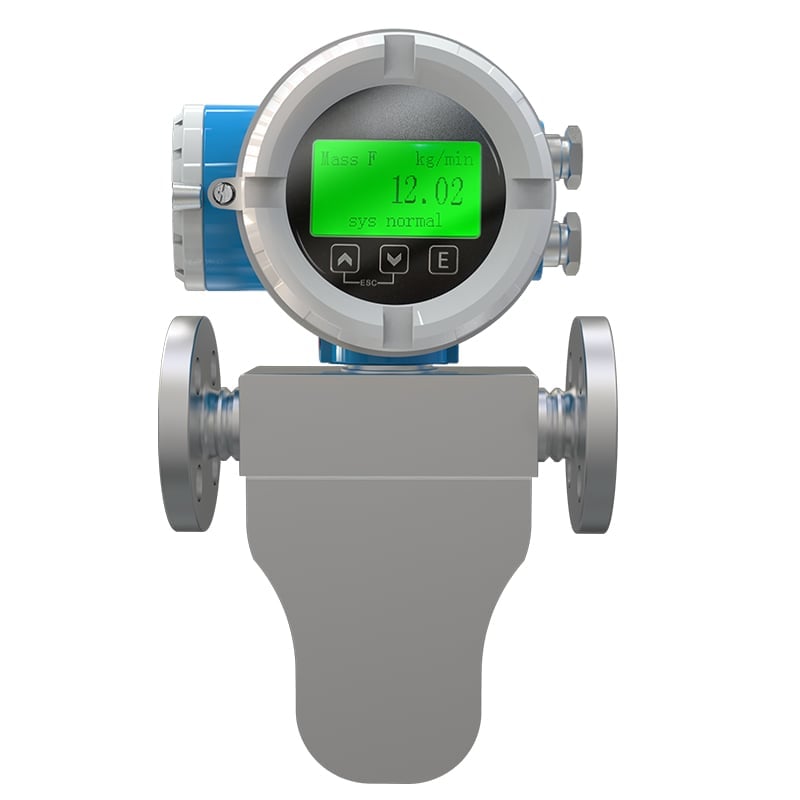
Przepływomierz masowy Coriolisa
- Wysoka dokładność do ±0,1 %, dobra niezawodność
- Dobra stabilność zerowa i odporność na zakłócenia
- Brak ruchomych części, brak konieczności konserwacji
- Wielokrotna komunikacja cyfrowa, w tym Hart
Termiczne przepływomierze masowe
Zasada działania:
These meters measure gas flow by detecting the heat dissipation caused by the gas moving past a heated sensor element.
Główne zalety:
- Idealny dla chemical gases like nitrogen, hydrogen, or chlorine
- Direct mass flow measurement (independent of pressure and temperature)
- No moving parts — low maintenance
Ograniczenia:
- Limited to czyste, suche gazy. Here’re more ideas for przepływomierze gazu.
- Not suitable for liquids or wet gas mixtures
Najlepsze dla:
Monitoring chemical gas flow in inerting systems, gas blending, or leak detection.
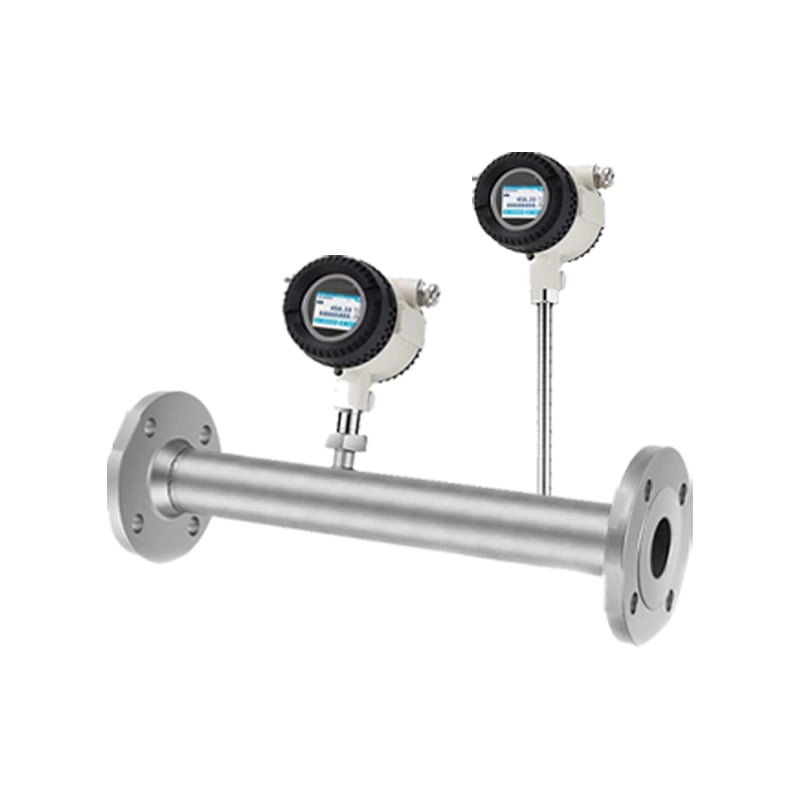
Termiczne przepływomierze masowe
- Klasa przeciwwybuchowości: Ex db IIC T6 Gb / Ex tb IIIC T80°CDb.
- Medium: Sprężone powietrze, azot, tlen, dwutlenek węgla i inne gazy nieskraplające się.
- Bardzo szeroki współczynnik obrotu 1:2500, zakres pomiarowy od 0,1 Nm/s do 250 Nm/s.
- W pełni cyfrowe przetwarzanie sygnału, wyższa dokładność, długoterminowa stabilność.
Przepływomierze magnetyczne
Zasada działania:
Przepływomierze magnetyczne operate based on Faraday’s law of electromagnetic induction, measuring voltage generated by conductive fluids passing through a magnetic field.
Główne zalety:
- Brak ruchomych części
- Excellent for corrosive, conductive liquids
- High accuracy even with varying viscosity
Ograniczenia:
- Only suitable for ciecze przewodzące
Najlepsze dla:
Acids, bases, salt solutions, wastewateroraz chemical slurries.
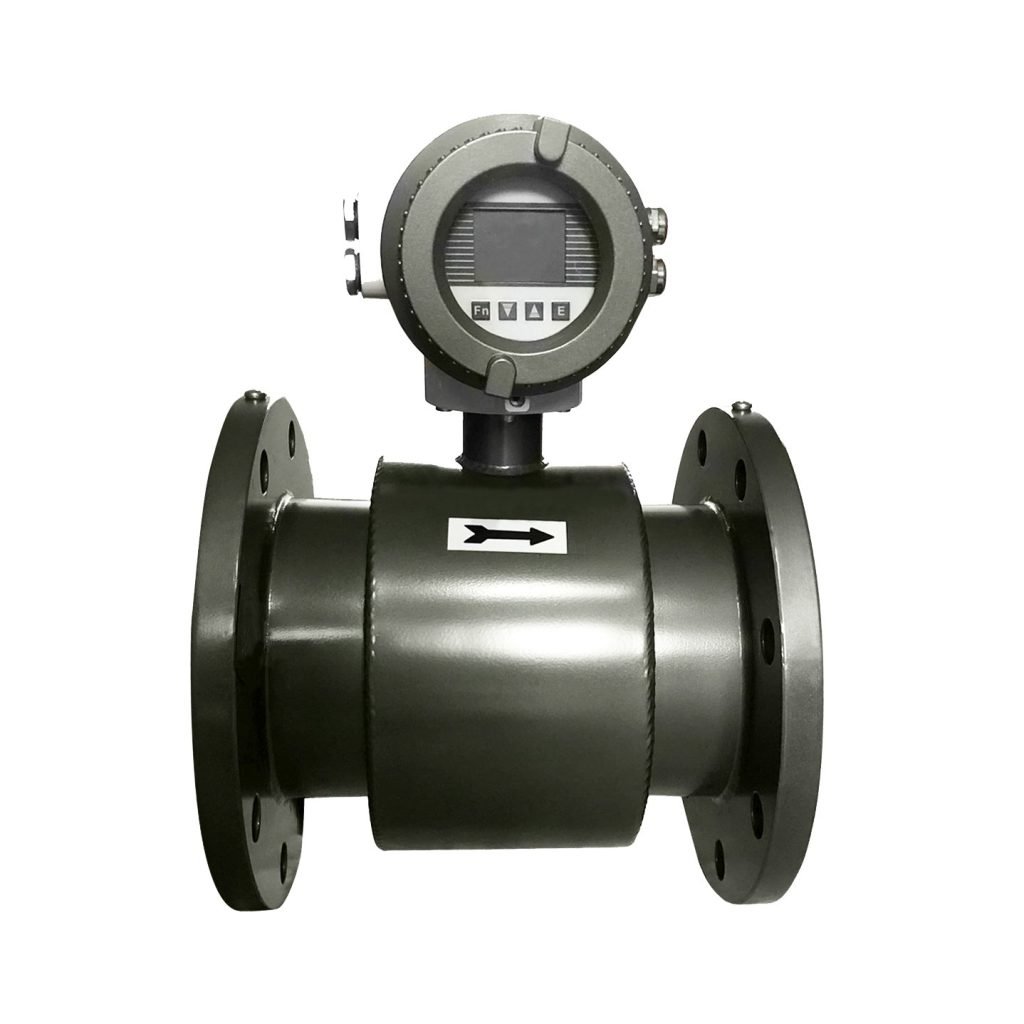
Przepływomierze elektromagnetyczne
- Wykładzina PU, PFA, ETFE lub FEP: doskonała odporność chemiczna i na ścieranie
- Wide range of electrode materials, including corrosion-resistant materials like Hastelloy.
- High accuracy up to ±0.2 %
Przepływomierze wyporowe
Zasada działania:
These meters physically trap a fixed volume of fluid and count how many times the chamber fills and empties.
Główne zalety:
- Excellent for płyny o wysokiej lepkości like oils, adhesives, or resins. Most recommended for przepływomierze oleju oraz przepływomierze paliwa.
- High accuracy even at low flow rates
- Independent of flow profile and pipe orientation
Ograniczenia:
- Contains moving parts that require maintenance
- Not suitable for abrasive or particulate-laden fluids
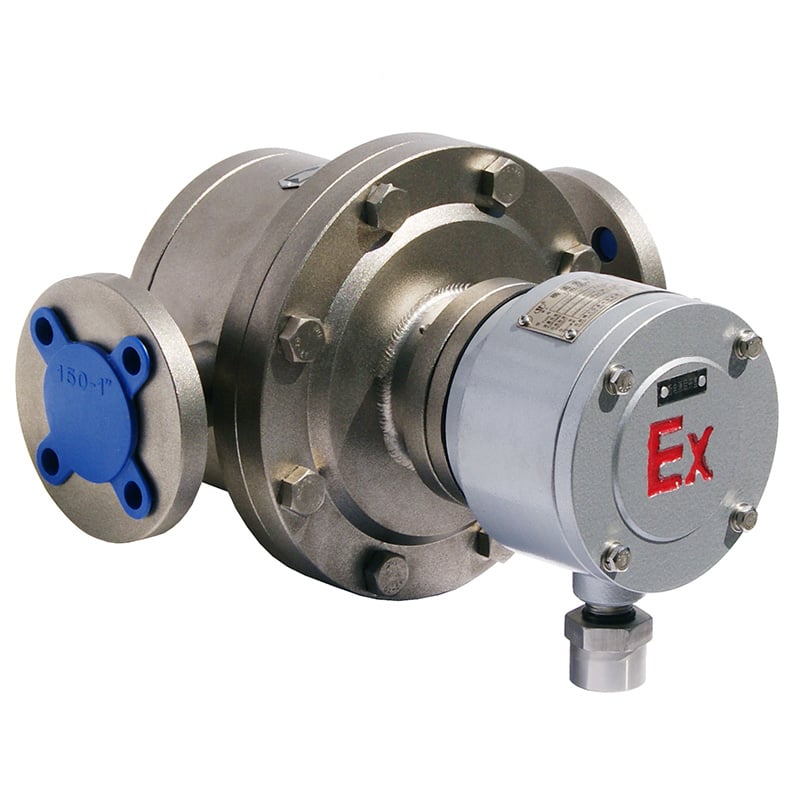
- Płynna praca wirnika spiralnego z minimalnymi wibracjami zapewnia stałą wydajność
- Szeroki zakres pomiarowy z dobrą powtarzalnością
- Precyzyjny pomiar z dokładnością do ±0,2%
- Niewrażliwy na zmianę lepkości
- Zoptymalizowany do pomiaru cieczy o wyższej lepkości
Najlepsze dla:
Lubricants, paints, polymersoraz non-corrosive chemical liquids.
Przepływomierze ultradźwiękowe
Zasada działania:
Ultrasonic flow meters measure flow rate using sound waves — either by the czas przejazdu lub Doppler method.
Główne zalety:
- Nieinwazyjny (clamp-on type available)
- Works for both conductive and non-conductive fluids
- Odpowiedni dla corrosive or sterile processes
Ograniczenia:
- Accuracy affected by bubbles or suspended solids
- Requires a clean pipe surface for clamp-on installation
Najlepsze dla:
Solvents, cooling liquids, and corrosive acids where contamination must be avoided.
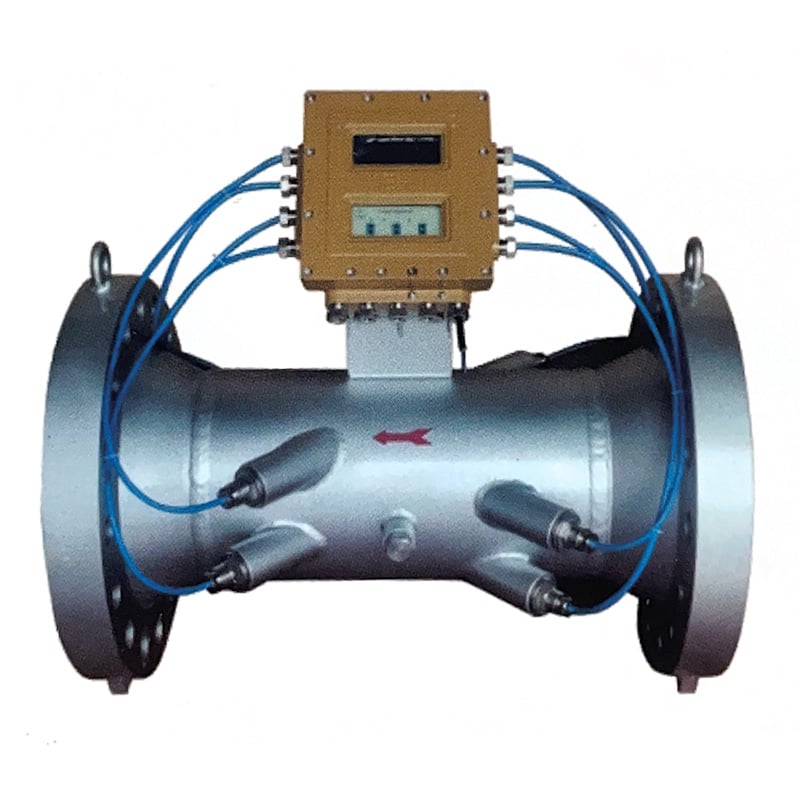
Ultradźwiękowy przepływomierz gazu
- Wysoka dokładność dla gazu do ±0,5%
- Brak ruchomych części, brak strat ciśnienia, brak niedrożności linii
- Brak smarowania lub okresowej konserwacji
- Na pomiar nie mają wpływu właściwości gazu
- Szeroki współczynnik obrotu 100:1
- Możliwość pracy dwukierunkowej
Gas Mass Flow Controllers (MFCs)
Zasada działania:
MFCs combine a mass flow sensor, a valve, and a control circuit to precisely measure and control gas flow in real-time.
Główne zalety:
- Provides precise flow control, not just measurement
- Compact and suitable for laboratory or pilot-scale processes
- Działa dobrze z reactive or specialty gases
Ograniczenia:
- Designed primarily for niskie natężenia przepływu
Najlepsze dla:
Gas mixing, coating processes, and catalyst research.
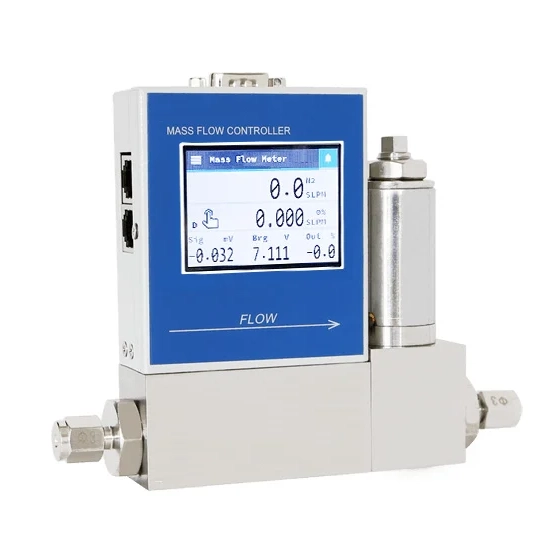
- Designed for low flow gas / liquid measuring
- It can measure high viscosity fluid and high density gas
- Designed for low flow gas / liquid measuring
- Zintegrowany regulator PID do regulacji natężenia przepływu
- Bezpośredni pomiar masowego natężenia przepływu, automatyczna kompensacja temperatury
How to Choose the Right Chemical Flow Meter
Selecting the correct chemical flow meter requires evaluating several technical and chemical parameters. Below are the main criteria to guide your selection:
1. Identify the Chemical Properties
- Korozyjność: Choose materials like PTFE, PFA, or Hastelloy for aggressive acids or alkalis.
- Przewodność: Use przepływomierze magnetyczne for conductive fluids; for non-conductive fluids, consider ultrasonic or Coriolis types.
- Lepkość: For viscous fluids, wyporność dodatnia lub Coriolis flow meters perform better.
2. Define the Flow Range and Pipe Size
Each meter has an optimal flow range. Oversized or undersized meters will reduce accuracy. Always match the flow meter’s range to your process flow rate.
3. Operating Conditions
- Temperature and pressure must be within the meter’s limits.
- In hazardous environments, select explosion-proof lub intrinsically safe models.
4. Installation Requirements
- Consider available space, orientation, and maintenance access.
- Some flow meters (like ultrasonic clamp-on types) are ideal when pipe modification is not possible.
5. Output and Communication
Modern chemical flow meters support 4–20 mA, Modbus, HART, or digital outputs for integration into process control systems.
6. Accuracy and Maintenance
If precision is critical (e.g., chemical blending or dosing), choose Coriolis lub przepływomierze magnetyczne. Some suppliers also provide very high accuracy PD flow meters like Metlan Instruments.
A chemical flow meter plays a vital role in controlling and monitoring chemical processes with accuracy and safety. Because of the diversity of chemical fluids — from corrosive acids to viscous oils — there is no single flow meter suitable for all situations. Ultimately, the right flow meter should match the chemical’s physical properties, the process conditions, and the required accuracy.
About Metlan Instruments Chemical Flow Meters
Przy Metlan Instruments, we specialize in high-precision flow measurement and control solutions for industrial applications. Our product range includes termiczne przepływomierze masowe, Przepływomierze masowe Coriolisa, positive displacement metersoraz mass flow controllers designed for both gases and liquids — including corrosive and specialty chemicals.
With advanced sensor technology and robust materials, Metlan Instruments ensures long-term stability, corrosion resistance, and exceptional accuracy — helping chemical plants, laboratories, and process industries achieve precise and reliable flow measurement.

